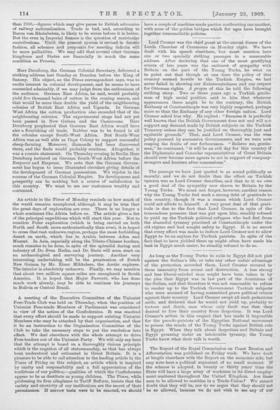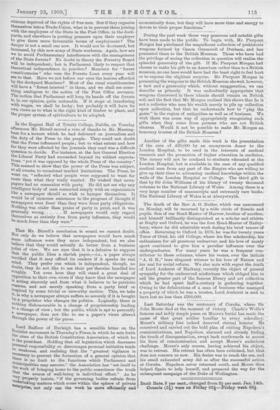The Report of the Royal Commission on Coast Erosion and
Afforestation was published on Friday week. We have dealt at length elsewhere with the Report on the economic side, but may note here a political argument of no small moment. If the scheme is adopted, in twenty or thirty years' time the State will have a large army of workmen in its direct employ- ment scattered throughout the United Kingdom. Are these men to be allowed to combine in a Trade-Union P We cannot doubt that they will be, nor do we argue that they should not be so allowed, because we do not wish to see any of our citizens deprived of the rights of free men. But if they organise themselves into a Trade-Union, what is to prevent them joining with the employees of the State in the Post Office, in the dock- yards, and elsewhere in putting pressure upon their employer to give them more favourable terms of employment P The danger is not a small one now. It would not be decreased, but increased, by this new army of State workmen. Again, how are we to avoid Parliamentary interference with the management of the State forests P No doubt in theory the Forestry Board will be independent; but is Parliament likely to respect that theoretical independence in practice P Members for " forest constituencies " who vote the Forests Loan every year will Bee to that. Have we not before our eyes the lessons afforded by the dockyard Members P Most of the rural constituencies will have a "forest interest" in them, and we shall see some- thing analogous to the action of the Post Office servants. The notion that Parliament will keep its hands off the forests is, in our opinion, quite untenable. If it stops at interfering with wages, we shall be lucky ; but probably it will have its °sus views as to what is the right kind of timber to plant, and the proper system of sylviculture to be adopted.







































 Previous page
Previous page